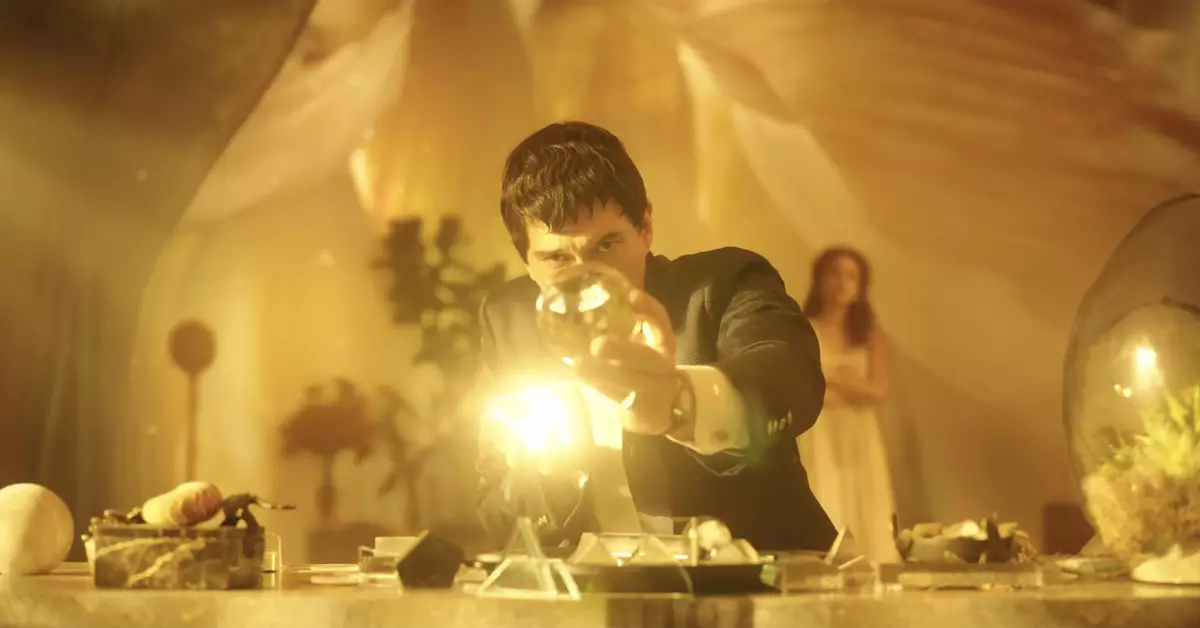Francis Ford Coppola, a titan of cinematic storytelling, has been vocal about his desire to push the boundaries of how narratives are presented in theaters. His recent project, *Megalopolis*, serves as a canvas for this ambition, particularly with the proposed integration of voice recognition technology to enhance the audience experience. According to a revealing interview with The Telegraph, Coppola envisioned a scenario where theater-goers could engage directly with the film’s protagonist, played by Adam Driver, through a voice-activated system that captures audience inquiries and seamlessly presents appropriate scenes as responses. This groundbreaking concept could transform passive viewership into an interactive dialogue, harking back to the traditions of ancient theater while embracing the innovations of modern technology.
The utopia of audience interaction, however, remains partially unrealized, hampered by behind-the-scenes complications. Amazon had initiated plans to develop a tailored version of its Alexa software aimed specifically for *Megalopolis*, but setbacks arose when key personnel were impacted by corporate layoffs in 2022. These unfortunate developments highlight the precarious intersection of innovation and corporate stability in the tech landscape. Despite these hurdles, Coppola remains optimistic, envisioning a future where no two showings of *Megalopolis* would be alike. This desire for audience engagement underscores a broader trend in filmmaking where directors seek to cultivate a more immersive experience for viewers, challenging the norms of traditional cinema.
Interestingly, the essence of Coppola’s idea was modestly trialed during film festival screenings, where a live interaction was orchestrated between Adam Driver and a selected audience member. This moment, however, straddled the line between creative novelty and confusion, leaving many attendees perplexed about the spontaneity and purpose of the segment. As detailed in Vogue’s account, a live actor posed questions to Driver mid-screening, creating an environment reminiscent of awkward Zoom calls rather than a fluid cinematic experience. The mixed reactions from audience members—some applauding while others expressed bewilderment—raise significant questions about the feasibility of live interactions in film viewings, particularly regarding their overall impact on audience engagement.
As *Megalopolis* navigates its theatrical release, it illuminates the evolving landscape of cinema where filmmakers like Coppola grapple with integrating technology in transformative ways. While the immediate prospects of a fully interactive film experience may remain distant, Coppola’s ambitions resonate with an audience’s hunger for innovation in storytelling. The concept of dynamic and tailored experiences represents a tantalizing glimpse at the potential future of film, blending traditional storytelling with the interactivity of digital media. It compels filmmakers and audiences alike to reconsider what it means to engage with a story, as well as the role that technology plays in shaping modern narratives.
While the grand vision of *Megalopolis* may yet be unfulfilled, it undeniably sparks conversation about the future trajectory of cinema. With directors like Coppola daring to dream of a theatrical experience that is responsive to audience participation, the possibilities for cinematic innovation remain as endless as the stories waiting to be told.

